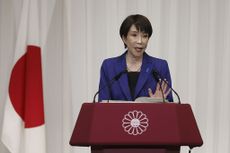Stock Markets
The latest news, updates and opinions on Stock Markets from the expert team here at MoneyWeek
Explore Stock Markets
-

Japanese stocks rise on Takaichi’s snap election landslide
Japan’s new prime minister Sanae Takaichi has won a landslide victory in a snap election, prompting optimism that her pro-growth agenda will benefit Japanese stocks
By Dan McEvoy Published
-

Profit from MSCI – the backbone of finance
As an index provider, MSCI is a key part of the global financial system. Its shares look cheap
By Rupert Hargreaves Published
-

'AI will change our world in more ways than we can imagine'
Interview Rob Arnott of Research Affiliates talks to Andrew Van Sickle about the AI bubble, the impact of tariffs on inflation and the outlook for gold and China
By Andrew Van Sickle Published
Interview -

Share tips 2026: this week’s top stock picks
Share tips Share tips 2026: MoneyWeek’s roundup of the top stock picks this week – here’s what the experts think you should buy
By MoneyWeek Last updated
Share tips -

Should you sell your US stocks?
The turbulent events of 2025 and early 2026 have dealt a blow to the concept of US exceptionalism, but the US stock market is still going strong
By Dan McEvoy Last updated
-

Three emerging-market stocks to diversify your portfolio
Opinion Omar Negyal, portfolio manager, JPMorgan Global Emerging Markets Income Trust, highlights three emerging-market stocks where he’d put his money
By Omar Negyal Published
Opinion -

Exciting opportunities in biotech
Biotech firms should profit from the ‘patent cliff’, which will force big pharmaceutical companies to innovate or make acquisitions
By Max King Published
-

What turns a stock market crash into a financial crisis?
Opinion Professor Linda Yueh's popular book on major stock market crashes misses key lessons, says Max King
By Max King Published
Opinion -

The state of Iran’s economy – and why people are protesting
Iran has long been mired in an economic crisis that is part of a wider systemic failure. Do the protests show a way out?
By Simon Wilson Published
